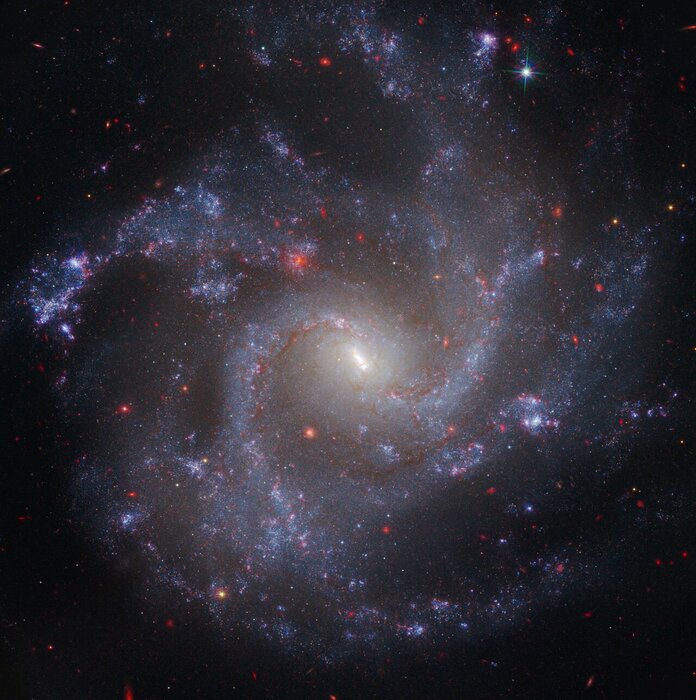"Planet 9" is mysterious and has never been seen before. Now researchers give hope: Has the “TESS” space telescope already discovered the planet?
There could be a ninth planet in our solar system. This is what researchers conclude from celestial bodies, some of which behave inexplicably. An unknown planet that is five to fifteen times the mass of the Earth, twenty times farther from the Sun than Neptune, and takes 10,000 to 20,000 years to orbit the Sun would explain this behavior. The theory of the mysterious “Planet 9” * comes from Konstantin Batygin and Michael E. Brown from the California Institute of Technology in Pasadena.
Researchers have been looking for "Planet 9" for years - but no one has seen it yet. The problem: Among other things, only a little sunlight penetrates into the region in which the planet is supposed to be located - so the planet is not so easy to see. In addition, the researchers do not know exactly where to look, which makes the endeavor to find a needle in a haystack.
"Planet 9": The "TESS" space telescope is actually looking for exoplanets
But now a new study shows: There is a possibility that "Planet 9" has already been found - by the space telescope "TESS" (Transiting Exoplanet Survey Satellite) by the US space agency Nasa. The telescope has been orbiting the earth since 2018 and is actually on the lookout for exoplanets *. These are planets orbiting other suns outside of our solar system.
"TESS" searches for exoplanets using the transit method: The space telescope looks into a region of the sky for a long time and observes whether stars darken for a short time. If this happens, it is a sign that a planet has passed in front of the star - a so-called transit, as was observed recently with the planet Mercury and our sun *.
"Planet 9": Telescope searches for fluctuations in the brightness of stars
In the case of "Planet 9", "TESS" would not be able to observe a transit, since the unknown planet will not move between "TESS" and the sun. But there are other possibilities - and "TESS" could have already recorded "Planet 9", as Matthew J. Holman and Matthew J. Payne from the Harvard Smithonian Center for Astrophysics and András Pál from Loránd Eötvös University in Budapest have found.
"To find new objects with unknown trajectories, we can simply try out all possible orbits," the researchers write in their publication on the subject. But is “TESS” actually able to discover “Planet 9”? The researchers assume that the unknown planet has a brightness between magnitude 19 and magnitude 24. There are already known transneptunic objects that have brightness in this area: For example the celestial body (90377) Sedna and two other, nameless objects.
Researchers find known objects in "TESS" data - is there "Planet 9" in it too?
The researchers used these three known objects and tested whether they could find them in the data from "TESS". And indeed: All three celestial bodies appeared in the data from "TESS" after the researchers had used a method called "digital tracking". In theory, the space telescope should therefore also be able to discover "Planet 9" - "TESS" may even have sighted the mysterious celestial body. The only thing missing is that someone finds the needle in the haystack.
"Planet 9" is a common topic among researchers. Most recently, two researchers had developed a highly speculative theory: Is “Planet 9” really a primordial black hole? * Because even a tiny black hole in our solar system could explain the inexplicable behavior of some celestial bodies. At the same time, it would also make it clear why no one has ever seen “Planet 9”. But this theory could soon be refuted: If researchers discover "Planet 9" in the data from "TESS".
By Tanja Banner
* fr.de is part of the nationwide Ippen-Digital central editorial office.
The giant star Betelgeuse in the constellation Orion is darker than ever. Is his explosion - a supernova - about to happen?


/cloudfront-eu-central-1.images.arcpublishing.com/prisa/TQ73US57UFGWTIXR7C3BS2OTIA.jpg)





